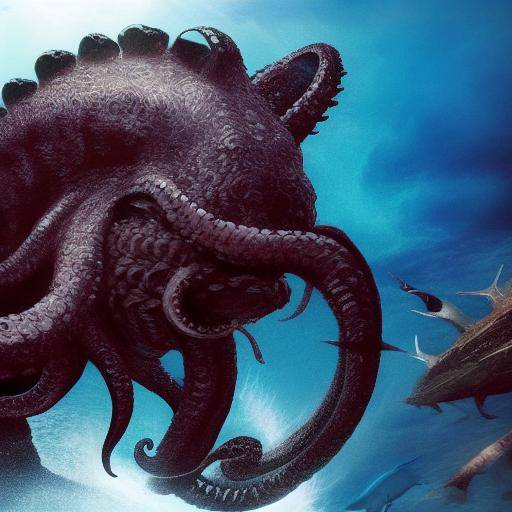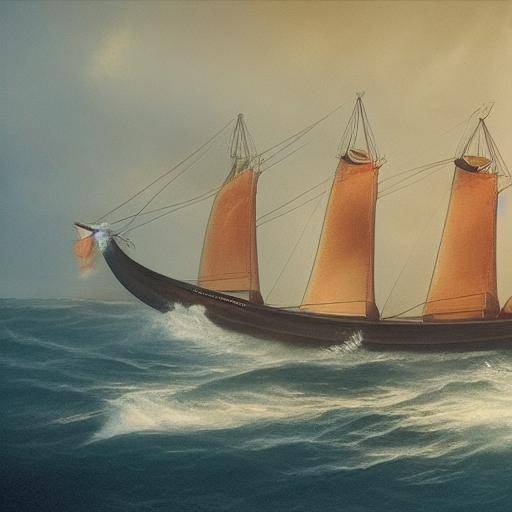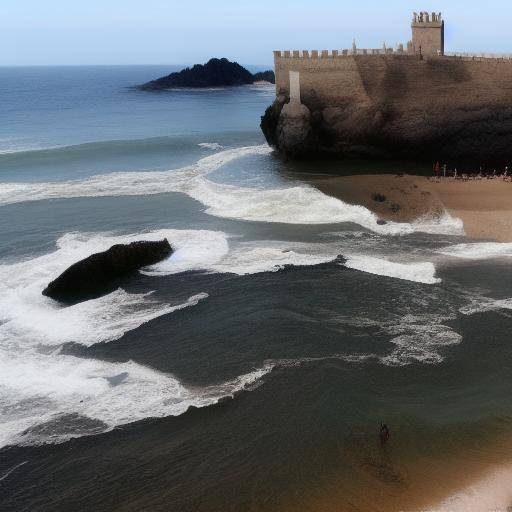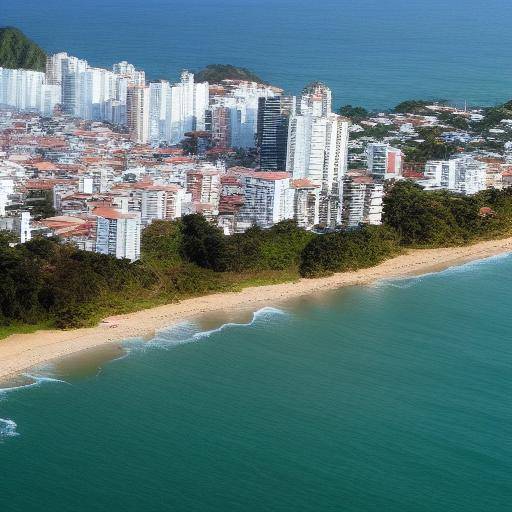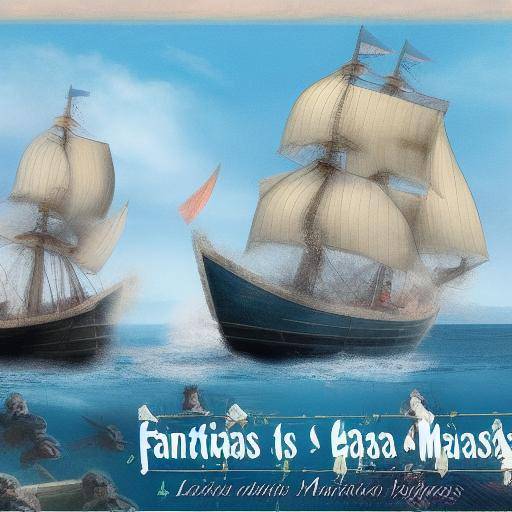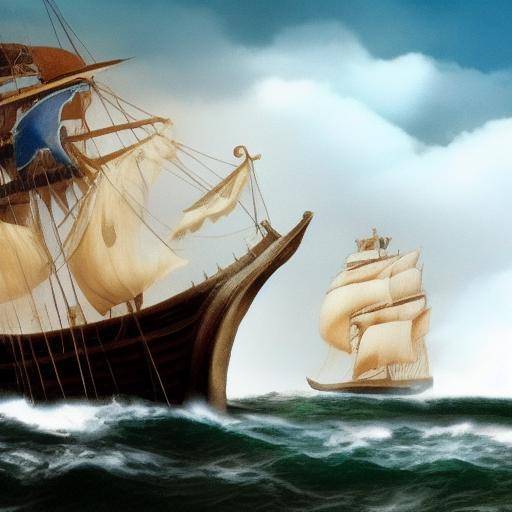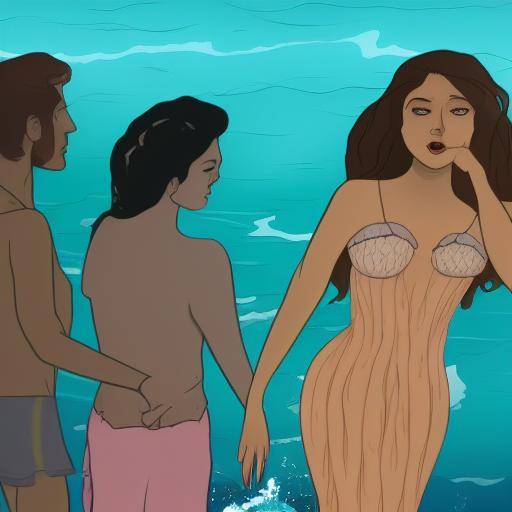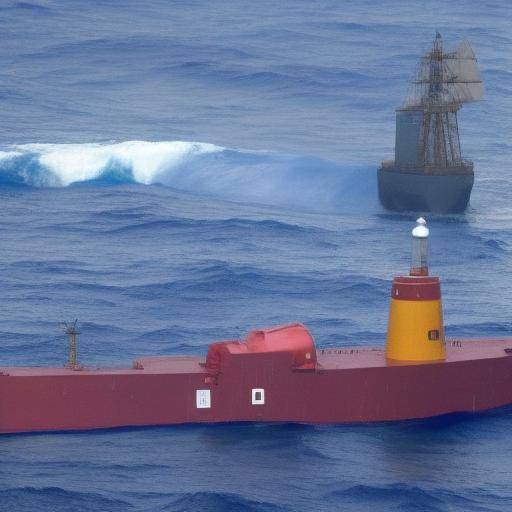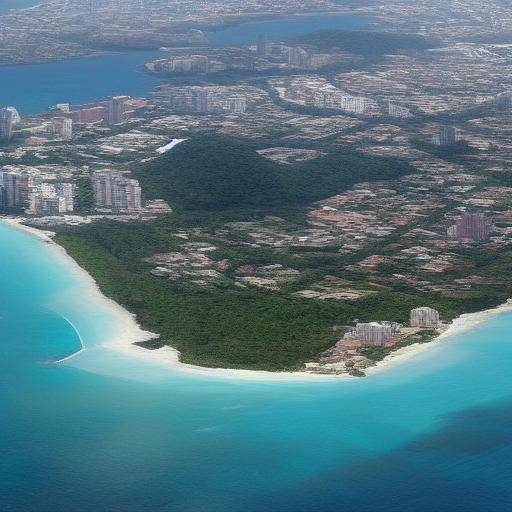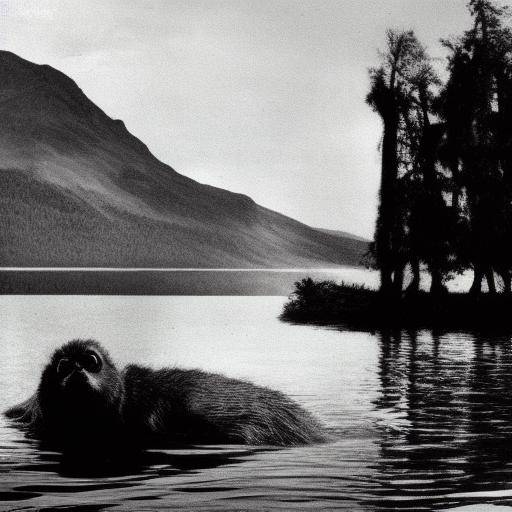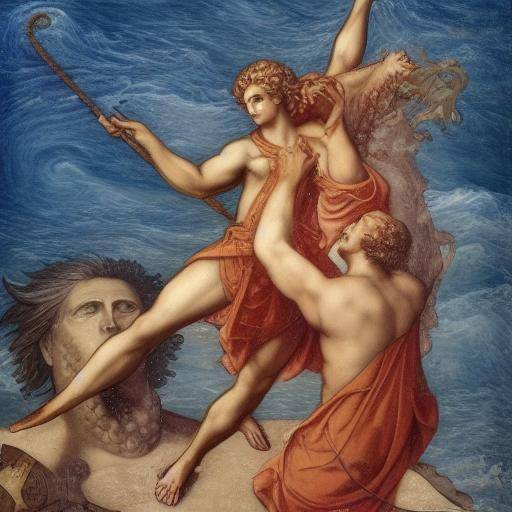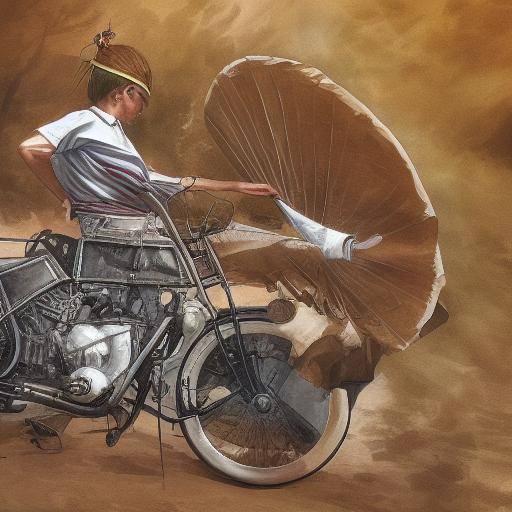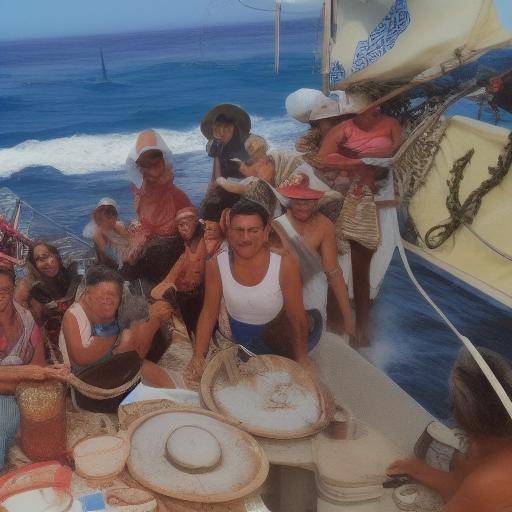
The shipwrecks, the marine legends and the accounts of the sea have fascinated mankind throughout history. These stories, real or imaginary, have captured the imagination of generations, transmitting teachings, emotions and mysteries associated with the ocean. In this article, we will explore the rich and fascinating intersection of shipwrecks, marine legends and tales of the sea, discovering its history, meaning and its contemporary connections.
Introduction
Since time immemorial, the sea has been a scene of adventures and tragedies. The shipwrecks, in particular, have raised a lasting interest. The combination of courage, desperation and survival linked to these events has inspired countless marine legends and tales of the sea over the centuries, turning these narratives into a cultural legacy that lasts until today.
In this article, we will explore the stories of shipwrecks from their origins to their contemporary repercussions. We will analyze the marine legends that have arisen around these tragic events, as well as the stories of the sea that have narrated the experiences, mysteries and wonders of the ocean. Through this journey, we will reveal the continuing influence of these themes in society and the current culture, manifested in art, literature, music and cinema.
History and Background
The shipwrecks are not simply tragic events, but events that have shaped the history of navigation and left an imprint on the human psyche. From antiquity to the modern era, shipwreck stories have evoked both fear and admiration for the immensity and power of the ocean.
Antiquity
In the mythologies of ancient civilizations, such as Greek and Roman, the sea was personified by coléric and capricious deities, whose acts influenced the life of mortals. The myths of shipwrecks, like that of Odysseus in the Odyssey of Homer, reveal the fascination and fear that the sea inspired in the minds of ancient peoples.
Middle Ages and Renaissance
During the Middle Ages, the sea was perceived as a mysterious and dangerous territory, inhabited by fantastic beings and inhabited by fearful creatures. The tales of shipwrecks found their place in the popular imaginary, feeding the narratives of maritime travels and adventures.
Modern era
With maritime expansion and colonization, the shipwrecks became events of economic and strategic interest. Marine legends gained relevance as stories of sunken treasures and ghost ships spread among sailors and coastal towns.
20th Century and News
The advent of modern navigation brought with it a new dimension of shipwrecks, marked by tragic accidents and catastrophes linked to maritime transport. These events fueled new legends and stories, ranging from disasters such as the Titanic, to contemporary stories of survival and rescue on the high seas.
Detailed Analysis
The stories of shipwrecks, marine legends and the stories of the sea offer a wealth of material for analysis from historical, cultural and human perspectives.
Significado y Relevancia Cultural
The shipwrecks not only represent individual tragedies, but also metaphors of the struggle against unforeseen forces, human fragility and resistance to the abyss of the ocean. These experiences have inspired a vast repertoire of literary, artistic, musical and cinematic works that explore the complexity of the maritime experience.
Marine Legends and Relatos del Mar: Myths and Realities
Marine legends have played a crucial role in the spread of shipwreck stories, turning tragedies into fables that transcend the purely historical sphere. On the other hand, the accounts of the sea have served as windows the vast horizons of the ocean, reflecting the cotidianity and prodigies that navigate their waters entails.
Impact on Art and Culture
The narratives of shipwrecks, marine legends and tales of the sea have permeated the artistic and cultural production of different epochs and geographies, reflecting human creativity when confronted with the immensity of the sea. From the paintings of marine landscapes of classic artists to contemporary films that portray nautical experiences, these stories have been an inexhaustible source of inspiration to express the complex relationships between the human being and his maritime environment.
Comprehensive review
The study of shipwrecks, marine legends and the accounts of the sea allows an in-depth analysis of their influence and relevance in various spheres of society.
Exploring Collective Imagination
The persistence of these narratives over time evidences their roots in the collective imagination. Fear of the unknown, the longing for adventure and the struggle for survival have been recurring themes that have found their expression in these stories, revealing fundamental aspects of the human condition.
Connections with the Present
The stories of shipwrecks and the accounts of the sea reduce the distance from the past, connecting the experiences of the crew of a centennial ship with those of modern sailors. In this way, these narratives reveal parallels and contrasts between the circumstances and challenges faced by seafarers at different times, thus enriching our understanding of navigation, sea and high seas life.
Comparative analysis
Despite these thematically related aspects, shipwrecks, marine legends and sea stories have distinctive nuances that differentiate them and enrich their understanding.
Shipwrecks: Reality and Drama
The shipwrecks represent true events that have a tangible impact on the lives of those who suffer them. Tragedy, survival and heroism are central elements that make up the chronicle of a shipwreck, leaving an imprint on collective memory.
Marina Legends: Myths and Fantasies
Marine legends, for their part, go beyond the limits of reality to explore the mysterious and supernatural aspects of the sea. Fantastic creatures, mermaids, hidden treasures and ghost ships are protagonists of stories that captivate imagination and expand the limits of what is possible.
Relationships of the Sea: Life in the High Sea
The accounts of the sea cover a wide range of personal and collective experiences, from travel accounts and sightings, to detailed descriptions of daily life on the high seas, offering a more humane vision and close to the complexities and wonders of navigation.
Practical Tips and Recommendations
For those who wish to explore more deeply the fascinating world of shipwrecks, marine legends and sea stories, here are some practical recommendations:
- Reading: Dive into the classic works of maritime literature and explore the diverse perspectives of the great writers who have captured the essence of the sea.
- Research: Conducts research in archives and libraries on historical shipwrecks and marine legends to understand their impact on culture and society.
- Travel: Consider embarking on sea cruises to experience firsthand the beauty and power of the ocean.
Conclusions and FAQs (FAQs)
Conclusions
The stories of shipwrecks, marine legends and tales of the sea constitute an enriching legacy that reveals the complexity of the relationship between man and elmar. Through these accounts, the barriers of time are transcended and teachings are offered on courage, resilience and human persistence against the unpredictable forces of nature.
FAQs
1. What is the difference between a shipwreck and a sea sinister?
The difference lies in the outcome of the situation. A shipwreck implies the partial or total loss of a boat, while a maritime sinister covers any incident in which the safety of the boat or crew is at risk.
2. What are some of the best known marine legends?
Among the most famous marine legends are the stories of the Dutch Errante, the Kraken, the sirens and the submerged city of Atlantis.
3. What do the stories of the sea bring to literature and culture?
The stories of the sea offer a unique vision of life on the high seas, exploring the challenges, the camaraderie and the beauty inherently linked to the navigation and discovery of new horizons.
4. To what extent do nautical stories influence contemporary maritime mentality?
The nautical stories, whether real or mythological, have contributed significantly to the configuration of modern maritime culture and mentality, influencing literature, cinematography and the collective imagination associated with the sea.
5. Are there projects of rescue and preservation of remains of historical shipwrecks?
Yes, various organizations seek the preservation and investigation of remains of historical shipwrecks to better understand maritime history, as well as to honor the memory of those who lost their lives in these events.
6. What lessons can be drawn from shipwreck stories today?
The stories of shipwrecks highlight the need for preparedness, resilience and solidarity in crisis situations, as well as the importance of environmental responsibility and maritime security.
In short, the stories of shipwrecks, marine legends and tales of the sea continue to captivate people of all ages, transmitting timeless lessons and a deeply rooted connection with the vast and mysterious world of the ocean. In exploring these narratives, a window opens to the deeper understanding of the human condition and its interaction with the immense and unpredictable marine kingdom.
This article aims to honor these stories, exploring their past, present and future impact, and highlighting their lasting significance in the cultural acquis of humanity.

